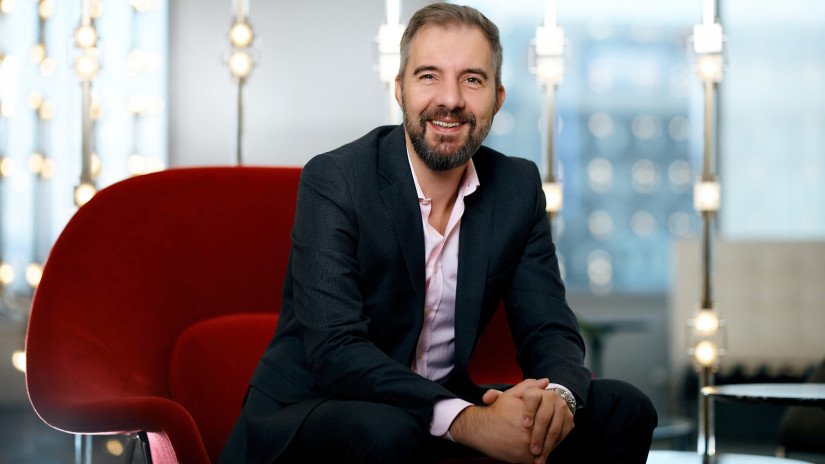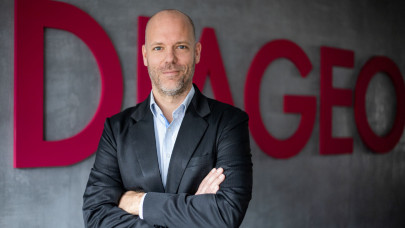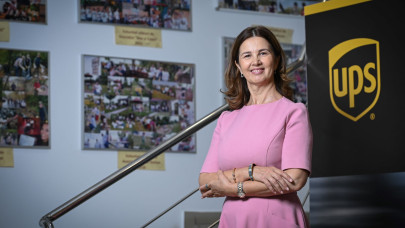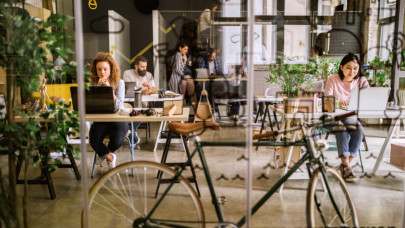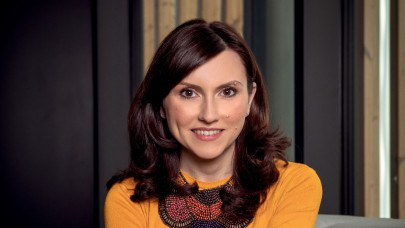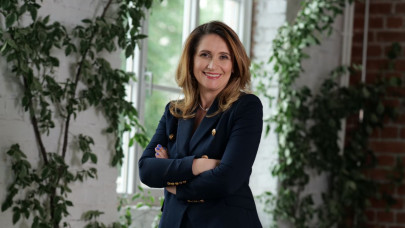The offices are supposed to become more sustainable. How are the sustainability trends reflected in Romanian office design?
Romanian office spaces are increasingly embracing sustainability by incorporating elements that have a lower environmental impact.
First comes the general design – most of the new buildings have environmental certifications. Secondly, the interior design has a very important role. This includes the use of natural materials (although using natural materials is not always good for the planet), recycled and biodegradable products, and embracing circular economy principles. Workspace Studio is at the forefront of this trend, offering office furniture and architectural products that are not only ergonomic but also environmentally responsible.
This shift towards sustainability is reflected in the selection of furnishings that have a longer lifecycle, are made from sustainable materials, and are designed with multifunctionality in mind, reducing the need for multiple products and thereby conserving resources. Additionally, the focus on acoustic solutions using recycled materials and furniture that can be easily recycled at the end of their lifecycle further emphasizes this commitment to sustainable office design.
How do you see sustainability in office design? What can be done?
Overall, Workspace Studio advocates for a holistic view of sustainability, encompassing not just the physical elements of office design but also the operational practices of the office environment.
Sustainability in office design should be considered as an integral and systemic approach, rather than a series of isolated actions. It involves choosing partitions, furniture, and architectural products that are not only ergonomic and aesthetically pleasing but also environmentally responsible and with a long-term lifecycle or warranty.
In practice, this translates into selecting products made from sustainable materials, such as recycled, biodegradable, or certified raw materials, incorporating multifunctional furniture that serves various purposes, thereby reducing resource consumption and increasing space efficiency, selecting furniture with longevity, or choosing timeless designs or products with long warranties, to reduce the need for frequent replacements.
Also, promoting a circular economy approach by selecting products that can be easily recycled or repurposed at the end of their lifecycle implementing energy-saving measures, and reducing plastic use in office operations to complement the sustainable design are steps that increase the sustainability level.
How does Workspace Studio embrace the sustainable mindset for office design?
Our sustainable mindset can be described from two angles. One, it's our commitment to provide a portfolio of office furniture and architectural products that are environmentally friendly, including items made from recycled, biodegradable materials and those promoting a circular economy. Also, we emphasize products designed to be 100% recyclable at the end of their life.
In addition, the holistic approach is based on multifunctionality, long-lasting design, and high quality, so that the solutions we mix in our projects do not need to be replaced in 2-3 years. Modern-classic design from Knoll is such an example. The acoustic solutions from Impact Acoustics are a showcase of multifunctionality and circular economy design, as the products are made from recycled materials. Also, more and more MillerKnoll products are made from ocean-bound plastic, a clear proof of commitment to the environment of the world leader in contract furniture, that we are e CertifiedDealer of.
From a different angle, you cannot preach without actually doing the same yourself, so as a company we walk the talk - we have enrolled in a program of carbon emission tracking, reporting, and improving our own work-life. The office also reflects exactly this philosophy, from a very flexible design, ready to be changed in an hourly timeframe if needed, ergonomic and high-quality furniture with a warranty of up to 12 years, which ensures a good and environmentally friendly investment, as well as sustainable practices in our operations, like reducing plastic use, drinking tap water instead of bottled and optimizing energy consumption, to complement the design approach.
What is the cost of sustainable office solutions, compared to other solutions? Are the local companies willing to pay more for sustainable products?
Sustainable office solutions often come with a higher initial cost compared to traditional alternatives. However, they are seen as more cost-effective in the long run due to their durability, reduced resource consumption, and potential long-term savings.
Products made from sustainable materials might be 20 to 50% more expensive, but the investment pays off over time in terms of environmental benefits, employee well-being, and overall return on investment when we talk about high-quality products with more than a 10-year warranty.
Regarding the willingness of local companies in Romania to pay more for sustainable products, there is a visible growing trend towards this mindset. Companies are increasingly recognizing the value of sustainable office designs, not just for environmental reasons, but also for their positive impact on corporate image, employee retention, and motivation. This shift is driven by external pressures from consumers, employees, and environmental challenges, prompting companies to adopt more complex and integrated sustainability solutions.
Mid-year, you announced that in 3 out of 10 furnishing projects carried out by Workspace Studio in the first half of the year, sustainability is a key requirement in the specifications. How do things look like now, near the end of this year?
Requirements regarding sustainability are included in around 30-40% of the projects. However, only 10-20% of the projects have sustainability features emphasized as a differentiator in the office strategy and therefore a key requirement.
The shift is visible compared to the previous years when sustainability was not considered by most companies in their office design approach, but there is also a significant cost pressure that is more and more visible and affects the sustainability of the overall solutions.
What is the company's strategy for the next period regarding ESG?
Environmental problems are not to be ignored and I think we need to overcome - at the corporate level and at the individual level - the philosophy of sustainability through specific actions, to focus more on systemic, integrated sustainability.
We are doing the common sense things – reusing and recycling, trying not to use plastic bottles or cups in the office, saving energy, and drinking water from the tap, our logistics organization takes into account both the reduction of energy and plastic consumption, but also the reuse of resources to extend their life cycle. We also plan greening actions in several urban areas, which complement everything we do every day.
And of course, the main impact is produced by our manufacturing partners – and here we are making a difference in the market by selecting our partners on clear ESG criteria and enhancing our product range with more environmentally friendly options, including recycled, biodegradable, and circular economy products. Further focusing on human-centric designs remains a goal, which improves the well-being and productivity of office workers. We also engage in community and social initiatives that align with our corporate values.
How much has the interest of companies in sustainable offices increased compared to a few years ago? How far behind are we in terms of sustainable offices compared to other European countries?
The interest of companies in sustainable offices has significantly increased compared to a few years ago. This heightened interest is driven by a growing awareness of environmental issues, the benefits of sustainable practices for employee well-being and productivity, and the broader societal shift towards sustainability. Companies are increasingly recognizing that sustainable office designs can lead to long-term cost savings, improved employee retention, and a positive corporate image.
Romania, like many of its Eastern European counterparts, is making significant steps towards adopting sustainable practices in office design, but it is still somewhat behind the more advanced Western European countries. The gap is narrowing, though, as the demand for sustainable solutions grows and local companies like Workspace Studio lead the way in adopting and advocating for sustainable office environments. Also, the interest is growing, driven by EU regulations, increased awareness among businesses and consumers, and economic development. But, we are still behind countries that we surpassed in terms of total GDP, like the Czech Republic, and we must work more and with better results at improving the sustainability quotient in our projects.

